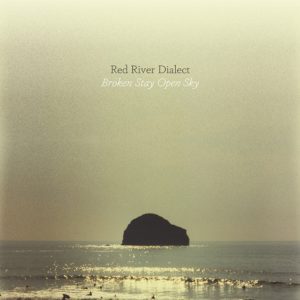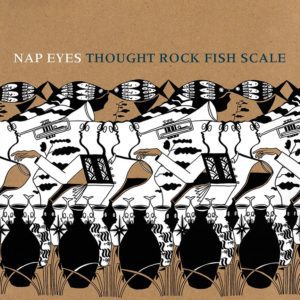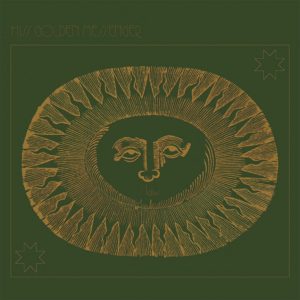Mike Cooper’s 1971-72 masterpieces are presented here for the first time as the definitive 2xLP double album, as Cooper originally intended them. These historic sessions veer from the impeccable folk-rock songcraft of Places I Know to the singular “songmaking” deconstructions of the more radical The Machine Gun Co.
Highlights
- First-ever artist-sanctioned and vinyl reissue, two years in the making
- Available on 150g virgin vinyl as a gatefold 2xLP, in a deluxe limited edition, as well as on gatefold CD and digital formats
- Includes 16 pp. chapbook (20 pp. CD version) with an essay by Mike Cooper, lyrics, and never published color photos
- Vinyl edition includes digital download coupon
Tracklist
A1. “Country Water” 3.04
A2. “Three Forty-Eight (Blues for or Against Andalusia)” 3.49
A3. “Night Journey” 5.09
A4. “Time to Time” 8.27
B1. “Paper and Smoke” 3.55
B2. “Broken Bridges” 4.38
B3. “Now I Know” 4.57
B4. “Goodbye Blues, Goodbye” 4.53
B5. “Places I Know” 2.25
C1. “Song for Abigail” 9.02
C2. “The Singing Tree” 5.36
C3. “Midnight Words” 3.28
D1. “So Glad (That I Found You)” 15.19
D2. “Lady Anne” 5.15
Catalog Number / Formats / Release Date
PoB-014 / 2xLP, CD / June 17, 2014
More from Mike Cooper
-

Mike Cooper: Life and Death in Paradise + Milan Live Acoustic 2018
$11.00 – $27.00Sale!
Mike Cooper & Derek Hall: Out of the Shades
$2.00 – $4.00Album Narrative
After two years of tireless work to liberate these long out-of-print masterpieces from the vaults, Paradise of Bachelors is proud to present the first artist-sanctioned reissues—and first-ever vinyl reissues—of iconoclastic English-born, Rome-based folk and experimental music legend Mike Cooper’s classic trio of early 1970s avant-folk/rock records: Trout Steel (1970), Places I Know (1971), and The Machine Gun Co. with Mike Cooper (1972). The latter two titles are presented for the very first time as the definitive double album, as Cooper originally intended them to be released.
Listening to Cooper’s recordings retrospectively in sequence reveals a rangy narrative of perennial reinvention from document to document through a playful approach to the deconstruction of “folk” musics and all that gross genre signifier implies and denies. By the time the Rolling Stones invited him to join the band in the early ’60s, and he politely declined (true story; Brian Jones took the gig), he had already progressed far beyond the circumscribed bounds of their early, hip-histrionic Albionic blues. By the time he was rumored to have retired from music in the mid ’70s, disappearing from his home in Southern England into Southern Spain to become a fisherman (an amusing fiction; he suffers from seasickness), he had already moved beyond his heady homebrew of progressive, free jazz-framed songcraft into increasingly less conventionally structured frontiers of open improvisation and later, electronic composition.
The Machine Gun Co. band (named for the 1968 Peter Brötzmann album) coalesced around Cooper’s desire to continue the improvisatory path forged on Trout Steel in a more sustainable manner, with a steady core group of likeminded musicians able to buttress its daring, long-form improvisatory vaults with a bedrock foundation. Peter Eden (Donovan, Bill Fay, Clive Palmer) produced the historic sessions, which veered from the impeccable conceptual folk-rock artistry of Places I Know (as Cooper explains, “the secret of the title of this record is that it was meant as a kind of covers record, or an homage to some musicians and songwriters that I liked at the time, the ‘places’ in the title—I was interested in seeing if I could emulate some other people without actually sounding like them”) to the utterly singular “songmaking” deconstructions of the more radical The Machine Gun Co., wherein the band erects lapidary arrangements reminiscent of Tim Buckley, only to dismantle them into virtuosic passages of Beefheartian free-jazz scree and skronk. According to Cooper:
What was initially planned was a double album, with one record played by the Machine Gun Co. and the other with arrangements by Mike Gibbs and his orchestra. Those two records were conceived as a double album aimed at covering the wide range of music I was interested in and gently leading the listener from the more accessible Places I Know, with its Mike Gibbs arrangements, into the more (for the times) extreme areas of The Machine Gun Co. That never happened, and they were released as two separate records a year apart.
Places I Know/The Machine Gun Co. with Mike Cooper is Paradise of Bachelors’ attempt, two years in the making, to correct this historical oversight and offer this masterpiece as it was designed to be experienced, as an extraordinarily ambitious document spanning Cooper’s song-based and improvisation-based styles of the early 1970s.
Streaming
Acknowledgments
8.3: Best New Reissue. The albums mostly move in long, heaving sighs—long, free-flowing sections where Cooper plays in open tunings and clusters of instruments take their turns speaking to each other around him… Sung verse[s] alternate with extended jamming like honey running from a spoon. [His] bands could do anything and go anywhere while preserving the fluid, good-natured energy of Cooper’s music. In a way, he’s like Van Dyke Parks; equally in love with traditions and in thrall to eccentricity, someone whose solo records build an alternate set of rules that their maker has no intention of spelling out for you.
– Jayson Greene, Pitchfork
Gorgeous, tender, moving… the opening of a musical world so wide that all boundaries between the music in his subsequent recordings would be erased completely…. The Machine Gun Co. was not simply an experiment that worked; it was a work of art that experimented with the idea of music being one vast universe with song being its poetic and foundational heart. This disc is easily Cooper’s greatest musical achievement.
– Thom Jurek, Allmusic
9/10. These exceptional LPs reflect the freedoms and open-minded spirit of the times. Places I Know is a good-natured retrenchment into Michael Chapman-ish folk rock, which also finds time for a spellbinding piano ballad, “Time to Time,” that would have done Bill Fay proud. The Machine Gun Co. summarizes the breadth of Cooper’s 1960s and 1970s explorations in potent small-group format. Stinging playing… One of Cooper’s landmark LPs, and a completely blitzing rapprochement of folk, blues, free improvisation, and avant-garde tactics.
– Uncut
4 stars. A deconstruction of folk music that simultaneously bypasses the mainstream rock of the day, sustained on a knife-edge by Cooper’s underlying guitar… It’s completely unconventional, immediately setting Cooper apart from anybody else in the early 70s folk circle. A rewarding, intriguing body of work.
– Mick Houghton, Record Collector
Cooper was forging connections between folk and experimental musics long before America got New or Weird…
– Keith Moliné of Pere Ubu, for The Wire
Imbued with an undeniable Englishness, but the chug of its rhythm carries a rootsy American flavour.
– Laura Barton, The Guardian
Essential reissues. Taken together, Trout Steel, Places I Know and The Machine Gun Co. with Mike Cooper provide a suggestive map of the post-modern eclecticism that’s blossomed in an age where the extremes of the world’s collected music can be accessed with the few taps of a button. Saxophones shriek beneath simple chords. Would-be ballads veer suddenly through psychedelic spirals. In retrospect, Cooper’s decisions feel suspiciously prophetic, like a long-range weathervane more interested in the future than present atmospheric conditions. 40 years later, Cooper’s work remains germane, even prescient.
– Grayson Currin, Independent Weekly
Trout Steel and Places I Know / The Machine Gun Co. with Mike Cooper are both excellent records, but they also tell a vital story about an important musician in modern music. These two albums capture Cooper at a pinnacle, where his newly honed songcraft and his knack for complicated sound and space met, clashed, and also combined in exciting and brilliant ways. These are reissues, but they may as well be new albums. They are as fresh as the latter and as lasting as the best of the former. By turns challenging and beautiful, earthen and ethereal.
– Matthew Fiander, PopMatters
Remarkable, groundbreaking albums that fuse folk, blues, psych, and avant-garde free jazz. Each of these records presents Cooper’s career in microcosm, shifting fluidly from country blues to psych rock to free improvisation and jazz idioms.
– Clinton Krute, BOMB
The work of a unique artist, one whose songcraft is always bolstered by relentless experimentation.
– Aquarium Drunkard
Hauntingly beautiful. His clear yet weary voice is the kind that’s made for storytelling, and Cooper sure tells some fascinating narratives across these records. Not only are his songs an evolved collection of should-be classics, but they’re also a piece of history that’s longing to be uncovered.
– Maeri Ferguson, The Horn
You only need to listen to these three albums to appreciate how far ahead of the game he was.
– Folk Radio UK

















